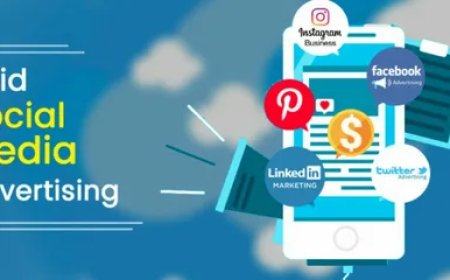WhatsApp Business API: Empowering Scalable Customer Engagement

-
In the age of digital transformation, communication is at the heart of every successful business strategy. As consumers increasingly turn to messaging platforms for real-time, convenient communication, businesses are expected to keep up. One of the most effective ways for brands to meet this demand is by leveraging the WhatsApp Business API—a scalable, secure, and highly engaging platform that enables businesses to communicate with customers across the globe through WhatsApp.
What is the WhatsApp Business API?
The WhatsApp Business API is a solution created by Meta (formerly Facebook) to help medium and large businesses connect with their customers in a more structured and automated way. Unlike the WhatsApp Business App—which is designed for small businesses to manage limited communications—the API is built for scalability and integration with a company’s existing tools such as customer relationship management (CRM) systems, contact centers, and marketing automation platforms.
This API doesn’t come with its own user interface. Instead, businesses must build or use a third-party platform to manage their communications. This flexibility allows organizations to tailor the experience to their operational needs while maintaining the convenience and reliability that WhatsApp is known for.
Key Features of WhatsApp Business API
1. Automated Messaging and Chatbots
One of the major advantages of the API is its support for automation. Businesses can build sophisticated chatbots or use automation tools to respond instantly to common queries, guide users through processes, or escalate conversations to human agents when needed. This helps save time, reduce operational costs, and deliver 24/7 support.
2. Rich Media Support
The WhatsApp Business API supports more than just text. Businesses can share images, videos, documents (like PDFs), audio files, and even interactive buttons. This makes it ideal for sending marketing content, product catalogs, payment confirmations, and more.
3. End-to-End Encryption
Security and privacy are top concerns in customer communication. All messages sent via the API are protected by WhatsApp’s end-to-end encryption. This ensures that both businesses and customers can communicate securely without fear of interception or unauthorized access.
4. Interactive Messaging
Businesses can use interactive features such as quick reply buttons and call-to-action buttons to make customer interaction faster and more engaging. For example, a button might allow a customer to confirm a booking or track an order with a single tap.
5. Two-Way Conversations
The API allows for real-time two-way communication. This enables customer support teams to respond to inquiries promptly and resolve issues efficiently, improving customer satisfaction and trust.
6. Session and Template Messaging
-
Session Messages: These are messages sent in response to a customer’s message and are allowed within a 24-hour window. Businesses can send free-form content in this window.
-
Template Messages: Outside the 24-hour window, only pre-approved template messages can be used to re-engage the customer. These are ideal for alerts, reminders, and follow-ups.
Use Cases of WhatsApp Business API
The flexibility of the WhatsApp Business API allows it to be used across a wide range of industries and functions. Here are some of the most common use cases:
1. Customer Support
Businesses can integrate WhatsApp into their help desks or support systems to manage customer queries quickly and efficiently. Support agents can use a unified interface to respond to tickets coming in through multiple channels, including WhatsApp.
2. E-commerce and Delivery Notifications
Retail and logistics companies often use the API to send order confirmations, shipping updates, and delivery notifications. These messages help customers stay informed about their purchases and reduce the need for manual follow-ups.
3. Marketing Campaigns and Promotions
Although the API is not meant for unsolicited bulk messaging, it can be a powerful tool for sending opt-in marketing messages. Businesses can send personalized promotions, special offers, and event invitations to customers who have agreed to receive such content.
4. Appointment Scheduling and Reminders
Service-based businesses such as clinics, salons, and educational institutions can use the API to send automated reminders for upcoming appointments, follow-ups, or even feedback collection.
5. Surveys and Feedback Collection
After a service interaction or purchase, businesses can request feedback through simple WhatsApp surveys. With features like quick replies, customers can respond effortlessly, improving response rates and providing valuable insights.
Benefits of WhatsApp Business API
Implementing the WhatsApp Business API provides several compelling advantages:
-
Global Reach: WhatsApp has over 2 billion active users globally, giving businesses access to a massive potential customer base.
-
High Engagement: WhatsApp messages have significantly higher open and response rates compared to emails or SMS, making it a highly effective communication channel.
-
Scalability: The API is designed for high-volume messaging, making it suitable for large enterprises and customer support operations.
-
Improved Customer Experience: Real-time messaging, personalization, and automation contribute to a seamless customer experience.
-
Compliance and Security: With built-in encryption and message template approval systems, businesses can maintain compliance with data privacy laws like GDPR.
How to Get Started
To begin using the WhatsApp Business API, businesses must go through several steps:
-
Create a Facebook Business Manager Account: This is required for authentication and phone number registration.
-
Apply for API Access: Businesses can apply directly through Meta or work with a verified Business Solution Provider (BSP).
-
Choose a BSP or Build a Custom Integration: Many companies use BSPs like Twilio, 360dialog, or MessageBird for easier setup and added features such as dashboards, analytics, and chatbot integrations.
-
Phone Number Registration: A valid phone number that is not associated with a regular WhatsApp account must be registered.
-
Template Approval: Before sending outbound messages, templates must be submitted to Meta for approval.
-
Conclusion
The WhatsApp Business API is a powerful tool for businesses looking to modernize customer communications. Its ability to offer secure, real-time, and interactive messaging at scale makes it a vital asset in today’s customer-centric digital economy.
What's Your Reaction?
























































